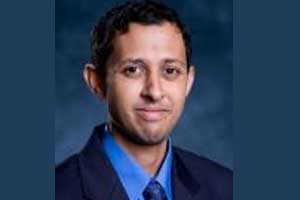- Home
- Medical news & Guidelines
- Anesthesiology
- Cardiology and CTVS
- Critical Care
- Dentistry
- Dermatology
- Diabetes and Endocrinology
- ENT
- Gastroenterology
- Medicine
- Nephrology
- Neurology
- Obstretics-Gynaecology
- Oncology
- Ophthalmology
- Orthopaedics
- Pediatrics-Neonatology
- Psychiatry
- Pulmonology
- Radiology
- Surgery
- Urology
- Laboratory Medicine
- Diet
- Nursing
- Paramedical
- Physiotherapy
- Health news
- Fact Check
- Bone Health Fact Check
- Brain Health Fact Check
- Cancer Related Fact Check
- Child Care Fact Check
- Dental and oral health fact check
- Diabetes and metabolic health fact check
- Diet and Nutrition Fact Check
- Eye and ENT Care Fact Check
- Fitness fact check
- Gut health fact check
- Heart health fact check
- Kidney health fact check
- Medical education fact check
- Men's health fact check
- Respiratory fact check
- Skin and hair care fact check
- Vaccine and Immunization fact check
- Women's health fact check
- AYUSH
- State News
- Andaman and Nicobar Islands
- Andhra Pradesh
- Arunachal Pradesh
- Assam
- Bihar
- Chandigarh
- Chattisgarh
- Dadra and Nagar Haveli
- Daman and Diu
- Delhi
- Goa
- Gujarat
- Haryana
- Himachal Pradesh
- Jammu & Kashmir
- Jharkhand
- Karnataka
- Kerala
- Ladakh
- Lakshadweep
- Madhya Pradesh
- Maharashtra
- Manipur
- Meghalaya
- Mizoram
- Nagaland
- Odisha
- Puducherry
- Punjab
- Rajasthan
- Sikkim
- Tamil Nadu
- Telangana
- Tripura
- Uttar Pradesh
- Uttrakhand
- West Bengal
- Medical Education
- Industry
Indian-American scientist awarded grant of 1.1 Million Dollar for cancer research

Houston: An Indian-American scientist has been awarded a grant of over USD 1.1 million for his ground- breaking research on cancer.
Navin Vardarajan, along with another University of Houston researcher Sanghyuk Chung, were awarded huge grants by Cancer Prevention & Research Institute of Texas (CPRIT) , an organisation that funds pioneering cancer research and prevention programmes in the state.
Associate professor of chemical and bimolecular engineering, Navin was given USD 1,173,420 to improve effectiveness of T-cell immunotherapy, while his fellow researcher Sanghyuk Chung, associate professor of biology and biochemistry, was awarded USD 811,617 to define molecular targets for the treatment of cervical cancer.
Varadarajan will use his grant to bring consistent results to cancer patients undergoing T-cell immunotherapy by manufacturing programmed T cells to meet, recognise and destroy tumours, a statement said.
"We have to understand every single T cell and what each one is capable of," said Varadarajan, who is looking for a perfect cell composition in order to manufacture only those that cure tumours.
"Once we know what is required to get a positive response, we can control the composition of the cells so that they all can work to fight cancer," he said.
Varadarajan said studying what makes better T cells will guide the development of the next generation of genetically modified cells, and all of immunotherapy in general.
"The big challenge with T cells is that there isn't one single thing that can be used to define what a T cell is supposed to do. Because it's a living cell, it's capable of so many different things but studying them at the single-cell level allows us to map all of these different things onto the same cell," he said.
Although cervical cancer is the fourth leading cause of cancer death in women worldwide, there has been little progress in the treatment of it over the past decade.
Chung will use his award to delve into the little-researched topic - the role of oestrogen in the development of cervical cancer.
"It is clearly demonstrated that human papillomavirus (HPV) is required for the development of cervical cancer, but evidence indicates that other co-factors are required for cervical cancer," Chung said.
Medical Dialogues Bureau consists of a team of passionate medical/scientific writers, led by doctors and healthcare researchers. Our team efforts to bring you updated and timely news about the important happenings of the medical and healthcare sector. Our editorial team can be reached at editorial@medicaldialogues.in.


